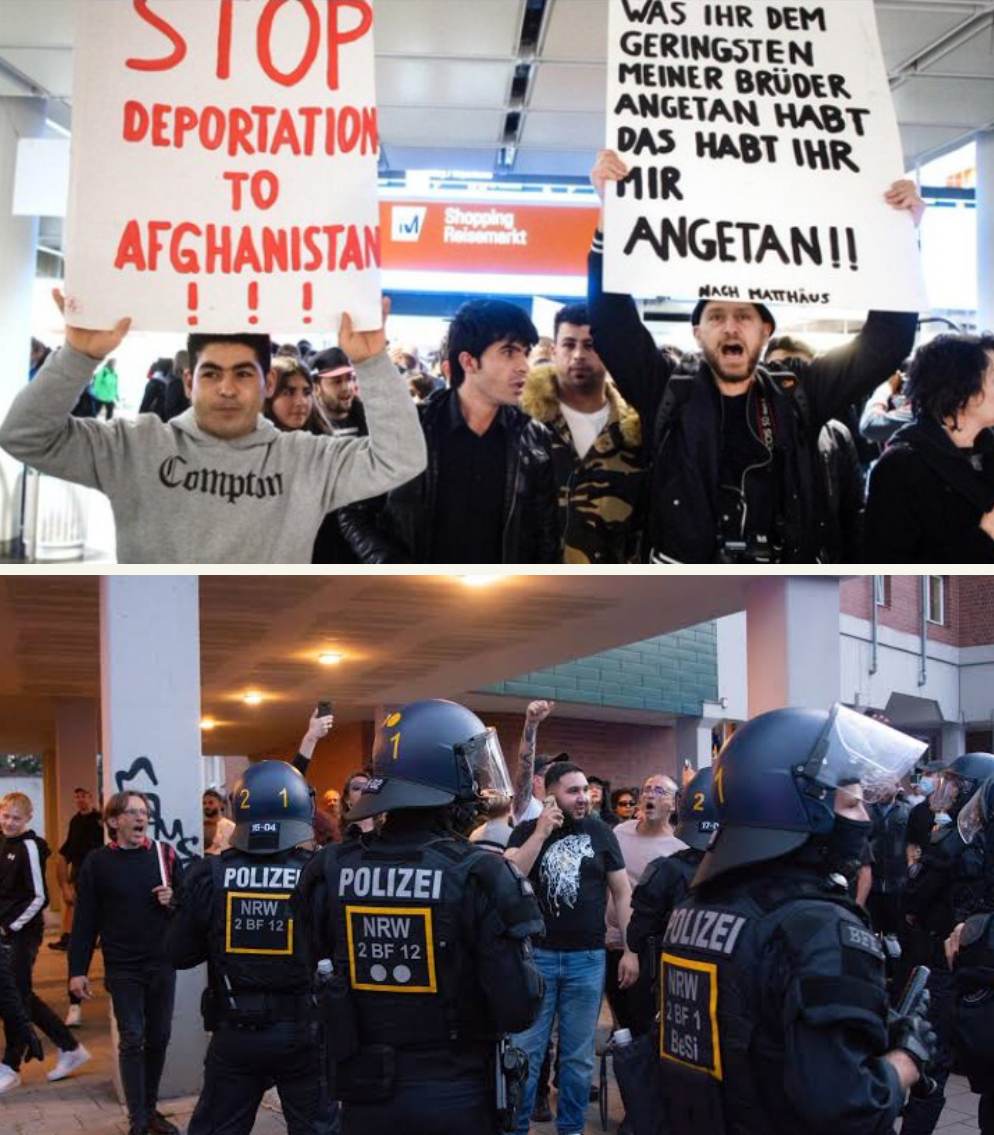
Germany reversed its previous policy of halting the return of migrants to Afghanistan due to human rights concerns after the Taliban took control in 2021
On Friday, Germany reversed its previous policy of halting the return of migrants to Afghanistan due to human rights concerns after the Taliban took control in 2021. The first group of 28 Afghans, identified as “convicted offenders” by German authorities, was deported to Kabul. This move comes as Germany’s coalition government faces increasing pressure to adopt a stricter stance on migration following a deadly knife attack in Solingen a week earlier and in anticipation of regional elections where the far-right AfD party is expected to gain significant support.
For the first time since the Taliban regained power in 2021, Germany deported Afghan criminals back to their home country, according to a government spokesperson, Steffen Hebestreit. The deportees, all convicted of serious crimes and without legal residency in Germany, were flown from Leipzig airport to Kabul early Friday morning.
This decision follows a week after the Solingen knife attack, for which the Islamic State claimed responsibility. It also precedes regional elections in eastern Germany, where the anti-immigration AfD party is projected to make substantial gains.
Interior Minister Nancy Faeser emphasized the importance of national security and the rule of law in justifying the deportations. According to Der Spiegel, the flight was arranged after two months of covert negotiations, with Qatar acting as a mediator between Germany and the Taliban. Hebestreit, however, did not confirm Qatar’s involvement, stating only that Germany had sought assistance from key regional partners to facilitate the deportations and that there had been no direct discussions with the Taliban.
Germany had ceased deportations to Afghanistan and closed its embassy in Kabul after the Taliban took power in August 2021. The Taliban government, which enforces a strict interpretation of Islamic law, has not been officially recognized by any nation.
Hebestreit stated that the deportation was meant to send a message, including a deterrent to potential criminals in Germany. Among those deported were individuals convicted of violent and sexual offenses, including a man involved in the gang rape of a 14-year-old girl.
Omid Nouripour, co-leader of the Green party, supported the expulsion of serious criminals but clarified that this does not mark the beginning of widespread deportations to Afghanistan. He emphasized that law-abiding individuals, particularly families and children who have fled radical Islamists, remain protected in Germany.
Chancellor Olaf Scholz’s government has been under increasing pressure to address illegal migration and take stronger action against dangerous and convicted asylum seekers, especially following a series of high-profile crimes. Germany is still grappling with the aftermath of last week’s knife attack in Solingen, which left three people dead. The suspect, a 26-year-old Syrian man, had been scheduled for deportation to Bulgaria, but the operation failed when authorities could not locate him.
In May, a 25-year-old Afghan was accused of killing a police officer in a knife attack in Mannheim, reigniting the debate over whether to deport serious criminals even from countries deemed unsafe, such as Afghanistan or Syria.
On Thursday, Faeser announced that deportations to Afghanistan and Syria would be part of a broader security and asylum policy package. The upcoming regional elections in Saxony and Thuringia are expected to be influenced by public discontent over immigration, with the AfD leading in the polls and Scholz’s coalition parties bracing for potential losses.
Amnesty International criticized the decision to resume deportations to Afghanistan, accusing Berlin of using the issue for electoral gain and violating international law. Julia Duchrow, head of Amnesty International Germany, stated that “no one is safe in Afghanistan” and warned that the German government risks becoming complicit with the Taliban by deporting individuals to the country.
In response to these concerns, Scholz affirmed in an interview that the government respects the constitution in all its actions but emphasized that those who commit serious offenses in Germany cannot expect the same protection as law-abiding individuals.
